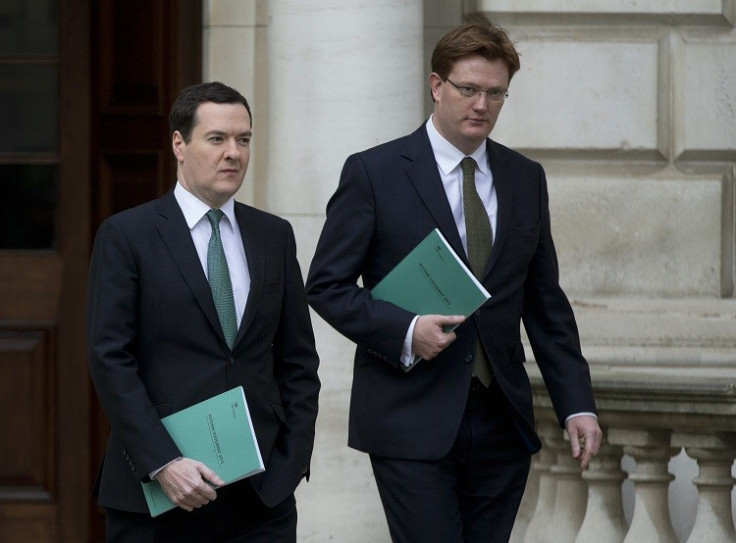Autumn Statement 2013: Business Groups Hail George Osborne's 'Fantastic' Rates Cap

Business groups broadly welcomed a raft of measures in Chancellor George Osborne's Autumn Statement to support industry, particularly smaller firms, in the UK's emerging recovery.
From capping the rise on business rates to abolishing the employer's jobs tax on employees under the age of 21, Osborne used the backdrop of an economic recovery and sharply improved growth forecasts as a platform on which to declare the government is backing "British business all the way".
"The people in these businesses epitomise the hard-working values this government support," he told the House of Commons.
Osborne's Autumn Statement announcements for UK firms included:
- Doubling the amount of export finance support to £50bn
- Extending the business rate relief scheme until 2014/15
- Capping business rate increases at 2% from April 2014 and allowing them to be paid in 12 monthly instalments
- A "Reoccupation Relief" which halves business premises rates for firms moving into empty stores on UK High Streets
- A £1,000 discount on rates for every retail premises worth up to £50,000
- A tax allowance to encourage the shale gas industry, by halving taxes on early profits from extraction.
- Extra money for start-up loans
- An extension of the New Enterprise Allowance
- Stamp duty abolished on capital gains from shares invested in Exchange Trade Funds
- Fuel duty rise in 2014 cancelled
- Jobs tax abolished on employees under 21-years-old from 2015, meaning employer national insurance contributions removed from 1.5 million jobs for young people.
"We have always advocated the dual approach of tackling the deficit and driving growth - the OBR forecasts confirm it is working. Let's stick with what works," said John Cridland, director of the Confederation of British Industry (CBI).
"The pressure on the high street has been recognised; the 2% cap on business rates and discount for very small businesses are positive, as is the reoccupation relief.
"Abolishing a jobs tax on employing young people under 21 will make a real difference and help tackle the scourge of youth unemployment."
However, Cridland said it was a "missed opportunity missed opportunity not to support our hard-pressed energy intensive businesses which are also struggling with rising costs".
"Today's Autumn Statement represents steady progress, with a range of announcements that address members' concerns in the cost of doing business, with action on business rates and confirmation that next year's fuel duty rise will be cancelled," said John Allan, national chairman of the Federation of Small Businesses (FSB)
"The statement is a sobering reminder about the scale of the deficit the country faces and the tough choices which need to be made.
"We therefore welcome the use of what spare resources the chancellor could find to focus tax cuts on encouraging firms to take on younger workers, which must be an overriding priority."
Helen Dickinson, director general of the British Retail Consortium (BRC), said: "The chancellor has recognised that businesses are suffering and is right to listen to retailers' concerns on business rates," said Helen Dickinson, director general of the British Retail Consortium (BRC).
"The BRC has campaigned for a 2% cap, and reform of the business rates system, and it is extremely welcome to hear it announced."
James Lowman, chief executive of the Association of Convenience Stores (ACS), said the business rates announcement is "fantastic news".
"This will help businesses to make investments in the next two years," he said.
Terry Scuoler, Chief Executive of EEF, the manufacturers' organisation, was disappointed in the Autumn Statement.
"The chancellor was right to stress the risks to recovery, but did too little to support the investment that would secure it," he said.
"While the Autumn Statement contained some useful measures on apprenticeships, skills and business rates, it failed to send a clear signal to industry that now is the right time to invest and create new jobs.
"In particular, it failed to address the growing threat to investment from energy prices that are squeezing margins and racing ahead of our competitors."
© Copyright IBTimes 2025. All rights reserved.






















